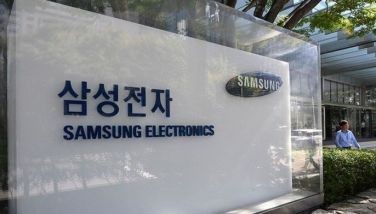Coding for the environment: Young Filipinos take the lead
MANILA, Philippines - Now on its second year, the eco-themed programming marathon (hackathon) seeks to provide a venue for hardware and software developers to create innovative tech solutions to climate change-related problems in the country.
When Raya Buensuceso, a Filipino scholar at Princeton University, received the Davis Projects for Peace grant last March, she found herself co-organizing this year’s HacktheClimatexWatson Social Enterprise Conference and Hackathon.
Now on its second year, the eco-themed programming marathon (hackathon) seeks to provide a venue for hardware and software developers to develop innovative tech solutions to climate change-related problems in the country.
“We want to produce or connect the coders with NGOs and maybe the government so that their apps can be adapted afterward. We also want to produce startups,” Buensuceso says.
The first event held last year gathered 256 developers, graphic designers, activists, and business analysts for a three-day hackathon. Teams composed of students and professionals submitted 36 applications after a 57-hour period of coding.
The winning entry, Tanaw, is a location-based game that tracks ecological hotspots and reforestation sites while helping local communities through eco-tourism.
Two students who also hail from Princeton – Jacob Scheer and Michael Lachanski, both Davis Prize for Peace grantees, organized the inaugural event using their $10,000 prize money.
This year, the HacktheClimatexWatson was held in partnership with the Watson Institute-Philippines, a start-up accelerator for budding social entrepreneurs, and has been expanded to include a social enterprise conference on the first day.
The conference, held at the De La Salle University, featured plenary and breakout sessions on environmental issues, including marine and wildlife, waste management, environmental protection, green technology, eco-tourism, renewable energy, among others. The last two days were devoted to the actual coding by the participants.
There were also product exhibits of sustainable social enterprises, sponsors, NGOs and community partners.
Youthful enthusiasm
One quiet weekend, the office of Microsoft Philippines in Makati was taken over by students and young professionals who turned the venue into a beehive of coding activity. At the end of the two-day programming marathon, nine teams made it to the final pitching.
Team Re/Cycle took home the grand prize of P40,000, a BizSpark account from Microsoft, a co-working space pass at Bitspace to develop the app further, and gift items from sponsors.
Their project: a mobile application that gives rewards points to bikers that can be redeemed for vouchers, gift items, and free lunches at shops and stores along their bike routes and frequented by bikers.
Jayvic San Antonio, a platform engineer at Voyager Innovations and the group’s team leader and spokesman, says the idea was hatched only a day before the start of the hackathon, inspired by a growing interest in biking among young people, including the team members and many of their friends.
“If even half of the motorists on EDSA would shift to biking, there would be less traffic congestion, less stress, more time for productivity and most importantly, decreased carbon dioxide emissions,” he said during the five-minute pitch.
Second place went to Team Bingo, whose idea is to connect NGOs or community organizations with fundraisers and donors through a portal called FundRun, which organizes running events for a cause. They won P25,000 and gift items.
Third placer Team Eco-Base produced Kernel Kit, a mobile application that seeks to encourage gardening to produce home-grown food. They said the app targets hobbyists just starting to plant in their own backyard, gardeners who have more advanced knowledge in backyard farming, and professional agriculturists.
The kit gives them the information they need to become successful gardeners, including guidance from a leading agriculturist. The team won P10,000 and gift items.
Moving forward: Making it sustainable
Buensuceso says they are now starting to see the potential of running the event as a full-fledged organization, not just a one-time thing every year.
“I think financing is a big question for now. The grants have sustained us for the past two years but in the future, we may have to rely on sponsorships. But even as it is now there are already many sponsors,” she says.
The next step is bringing the event (though on a smaller scale) across the country. In October, the hackathon will be in the Bicol region. There are also plans to bring it to other places.
Kyle Abughanem, design lead and developer at Instigators Inc. who participated in last year’s competition, believes that the projects developed for the hackathon are just the means to a bigger end, which is to raise awareness for environmental issues.
“Events like this really help people to understand, not just because they want to win or build something. But since they want to build something, they are constantly thinking of this and it becomes part of their memories,” he says.
Abughanem was not part of the winning team last year but was eventually adopted by the winners. After the competition, they built a mobile application called Tremors, which gives users an idea of how far they are from the West Valley Fault.
“We are trying to help people become more aware and prepared for it (the big quake). Our app can tell people where the nearest hospitals and evacuation centers are relative to their location and eventually we start pushing tips on how people can prepare,” he says.
The Tremors app had more than 300,000 users, 30,000 of whom signed up less than 24 hours after the app went live. “As a free service, this is very important to us,” he says.
Meanwhile, Buensuceso is an incoming Economics junior at Princeton University and will be flying back to the US anytime soon. The Davis Peace Prize, a grant established by international philanthropist Kathryn W. Davis, is also on its ninth year and continues to support and encourage the youth to create and test their own ideas for building peace.
- Latest
























